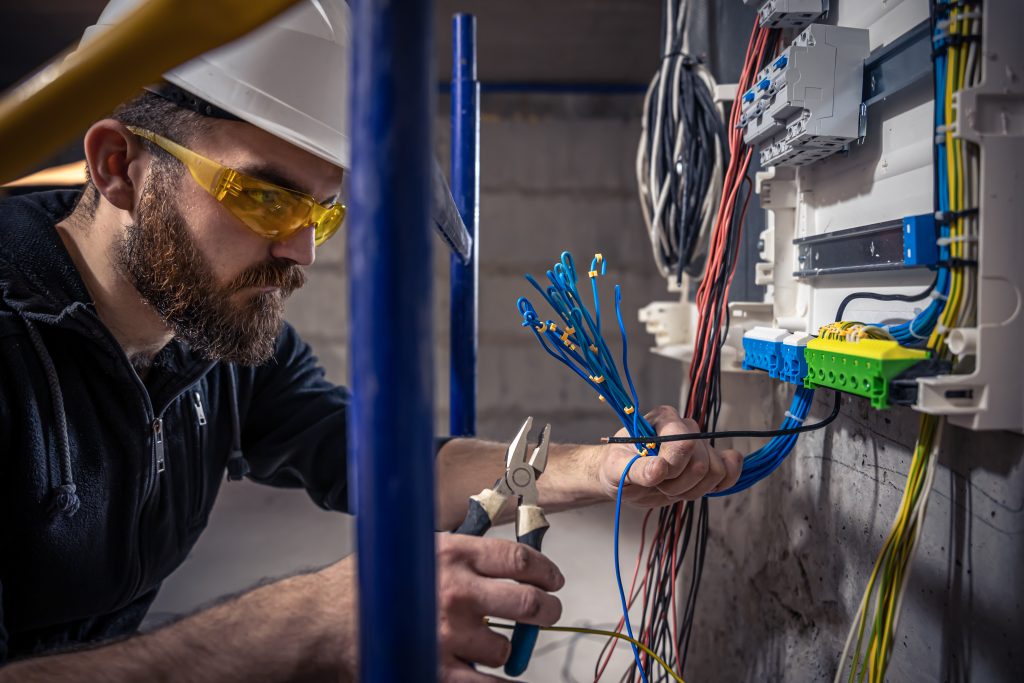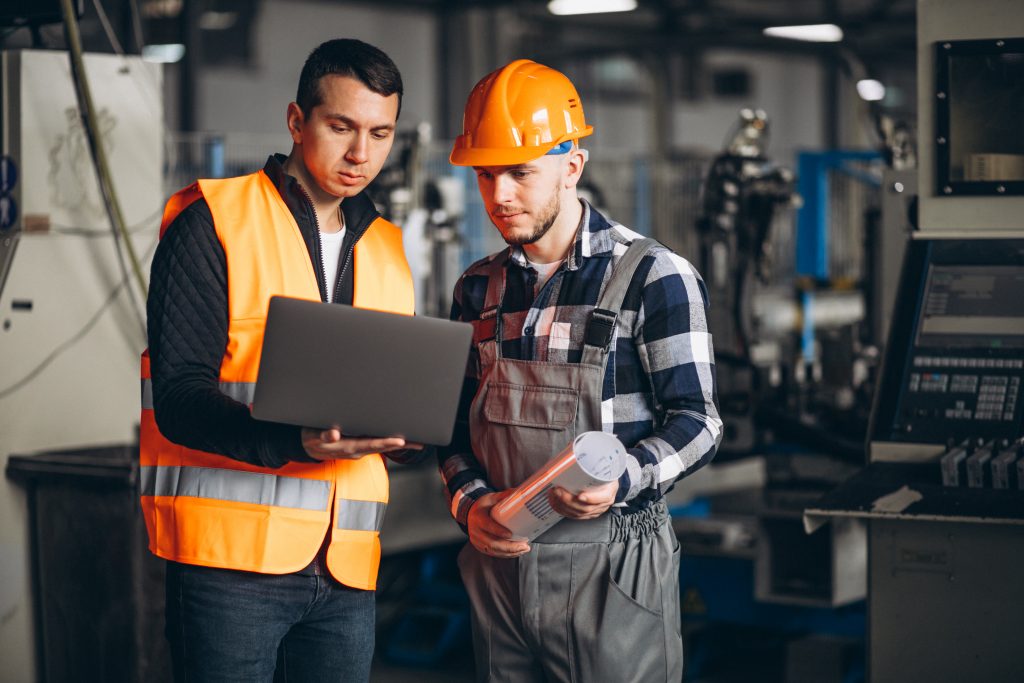

BMS maintenance & BMS Testing is key to ensuring the system functions as expected. A building management system (BMS) is a suite of software applications used to manage and automate various aspects of an organization’s buildings. A BMS can automate things like security, operations, maintenance, and more. One of the most important aspects of a BMS is BMS maintenance and BMS testing functionality. By keeping your BMS functioning properly, you reduce the risk of data loss and system failures. In this blog post, we will discuss the basics of building management system maintenance and building management system testing.
A Building Management System (BMS) is a computerized system that manages the activities in a building, such as the availability of utilities, security, and climate control. BMS systems are used to improve safety and efficiency in buildings by providing real-time updates on conditions and actions required to maintain or improve building performance.
The main components of a BMS include an automation engine, data stores, communication modules, and user interfaces. The automation engine coordinates the activities of multiple users through the use of standardized processes and commands. The data stores contain information about the building’s infrastructure and occupants. The communication modules allow users to exchange information securely over networks. The user interfaces allow users to access information stored in the BMS system.
To maintain a BMS system properly, it must be tested regularly to ensure that it is functioning properly and meets all required specifications. Testing includes verifying that all commands are executed correctly and that data is accurate. Testing also ensures that user interfaces are operable and that communications between modules are reliable.
Building management systems (BMSs) are critical components of a building automation system. They automate many routine tasks, such as controlling floor temperatures and air quality, managing lights and appliances, and monitoring security. BMSs can also provide real-time alerts when problems arise.
Regular maintenance and testing of BMSs is essential to ensure that they are operating correctly and providing the expected benefits. It is important to perform regular system checks to identify any problems early and correct them before they cause disruptions.
There are several types of BMS maintenance that should be regularly performed:
System hardware maintenance : This includes checking the BMS hardware for signs of wear or damage, and replacing any parts that need replacement.
: This includes checking the BMS hardware for signs of wear or damage, and replacing any parts that need replacement. System software maintenance : This involves checking the overall functionality of the BMS software and making any necessary updates.
: This involves checking the overall functionality of the BMS software and making any necessary updates. System performance monitoring : Monitoring system performance can help identify potential issues early on, allowing for quicker repairs or remediation measures.
: Monitoring system performance can help identify potential issues early on, allowing for quicker repairs or remediation measures. System configuration management: Keeping track of all changes to the BMS configuration helps ensure stability and continuity of operation across installations.
There are a few different types of maintenance and testing that organizations must do to keep their buildings running smoothly.
Facility management includes all aspects of running and maintaining an organization’s physical plants, from parking lots to factories. Facility management typically includes such tasks as regular cleaning and inspection, emergency preparedness planning, fire safety inspections, and inventory control.
In addition to facility management, there is security management. Security concerns include everything from keeping workers safe in the workplace to deterring crime outside the building or campus. One common form of security management is intrusion detection and prevention (IDP). IDP systems monitor network traffic for suspicious activities, such as unauthorized access or malware infections.
Building automation systems (BAS) provide many facilities with a single point of control over many key aspects of operations. BAS can automate routine tasks such as lighting and HVAC system controls, motion sensors to turn off lights when people leave a room, and building access control systems to allow authorized personnel into specific areas only. BAS also enable administrators to perform complex tasks such as scheduling janitorial services or tracking energy use in a building.
Regularly testing building software applications allows administrators to identify any issues early and fix them before they cause bigger problems down the road. Building software applications can include everything from accounting software used by businesses to communications systems used by hospitals. Testing should include not only checking for errors but also ensuring that the application works properly across a broad range of devices and platforms
Maintenance and testing is an essential part of any building management system. It ensures that the system is working correctly and that it can be properly maintained. Proper maintenance and testing can prevent costly repairs or other issues down the road.
Regular maintenance and testing also safeguards against potential cyberattacks. A well-maintained BMS can help protect against data breaches, which could have serious consequences for businesses. Cybersecurity is one of the fastest-growing sectors in the world, so it’s important to ensure your BMS is up to date and secure.
There are a variety of ways to perform maintenance and testing. You can do it manually or using automated tools. The most important thing is to make sure you test all aspects of the system regularly to ensure its accuracy and functionality.
Building management system (BMS) maintenance and testing is a key part of ensuring that your building operates as intended. By regularly performing maintenance and testing, you can prevent common issues from causing damage to your facility, and keep your building running smoothly.
The benefits of BMS maintenance and testing include:
Preventing common issues from causing damage to your facility.
Keeping your building running smoothly.
Reducing the need for future repairs or upgrades.
Regular maintenance and testing of a building management system (BMS) is essential to ensuring the overall operation of the BMS and its associated systems. While not all activities required for BMS maintenance and testing are listed in this document, they should be conducted as appropriate to the specific BMS being operated. Some general areas that should be monitored on an annual basis include:
-Operational performance of components
-Configuration management
-Data integrity
-Security safeguards
Specific activities that may need to be performed on an intermittent or event basis include:
-Database migrations/updates
-System performance analysis
-Testing of new features or updates
Building management system (BMS) maintenance and testing can be a daunting task, but it’s one that should not be taken lightly. By following a few simple guidelines, you can ensure that your BMS is performing at its best and that any issues are quickly identified and fixed. In addition to providing peace of mind, good maintenance and testing also helps to keep your building running smoothly and efficiently—two things that are sure to benefit both you and your tenants. So don’t wait; get started on your BMS maintenance plan today!

Support and maintenance services are available through us. We can provide ad-hoc support or tailored ongoing support tailored to your needs. In addition, we provide integrated remote support and BMS system monitoring, allowing us to detect issues as soon as they occur. Through thorough analysis of your building’s system, we can recommend optimal actions tailored to your building’s specific environmental conditions.

Copyright © by BMS Control Systems Limited 2023. All right reserved. Company No. 05899420
